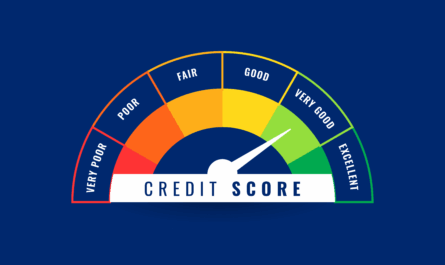In today’s era, the concept of a payment holiday has garnered significant attention as a flexible option for borrowers facing temporary financial challenges. But what exactly is a payment holiday, and how does it work? In this blog, we will explore the meaning of a payment holiday, delve into how it functions, and shed light on its implications for borrowers.
Also Read: Marksheet Loan – Eligibility, Interest Rates & Documents
What is a Payment Holiday?
A payment holiday, also known as a repayment holiday, is a temporary break or suspension from making regular loan or mortgage repayments. During a payment holiday period, the borrower is not required to make their usual monthly payments, providing them with a brief respite from the financial obligation. Payment holidays are typically offered by lenders as a measure to support borrowers who are experiencing financial difficulties, such as unexpected expenses, job loss, or other unforeseen circumstances.
If you are planning to go on a holiday or want to renovate your house for a special occasion, fret not, Airtel Finance has the perfect solution for the extra cash you need. Just avail the personal loans from Airtel through The Airtel Thanks App and choose the tenure and amount as per your requirement. Use the EMI calculator to calculate what your EMI and get your loan amount in your bank account in 24 hours.
Also Read: Simple Interest Explained: Definition, Formulas, Takeaways
How Does a Payment Holiday Work?
When a borrower requests a payment holiday from their lender and it is approved, the repayment schedule for the loan or mortgage is temporarily adjusted. Instead of making regular monthly payments, the borrower is granted a predetermined period of time during which they do not need to make any repayments. The missed payments are usually added to the end of the loan term or spread out over the remaining repayment period, extending the overall duration of the loan.
Also Read: Nonbank Financial Institutions: What and How Do They Work

FAQs About Payment Holidays:
-
What is the benefit of taking a payment holiday?
A payment holiday offers temporary relief to borrowers facing financial challenges by providing them with the opportunity to pause their repayments without incurring immediate consequences such as late fees or damage to their credit score. This breathing space allows borrowers to navigate through financial difficulties, address unexpected expenses, or manage cash flow disruptions, offering a sense of financial flexibility during times of need.
-
Are payment holidays available for all types of loans?
Payment holidays are commonly extended for various types of loans, including mortgages, personal loans, and other forms of credit. However, the availability of payment holidays may vary depending on the lender’s policies and the specific terms outlined in the loan agreement. It is advisable to consult with your lender to determine if a payment holiday option is accessible for your particular loan and to understand the implications of utilising this feature.
-
Does taking a payment holiday affect my credit score?
While the act of taking a payment holiday itself may not have a direct impact on your credit score, it is essential to note that lenders may report the missed payments to credit bureaus, which could potentially influence your credit rating. Communicating with your lender and gaining clarity on how a payment holiday may be reported to credit agencies can help you assess the potential implications on your credit score and make informed decisions regarding this temporary relief option.
4. Can I request a payment holiday multiple times?
Certain lenders may permit borrowers to request multiple payment holidays under specific circumstances, depending on their policies and the borrower’s financial situation. However, it is crucial to recognise that repeated utilisation of payment holidays may have long-term financial implications, such as increased interest costs or extended loan terms. Prior to submitting multiple requests for payment holidays, it is advisable to consider the overall impact on your financial well-being and explore alternative solutions if necessary.
5. How do I apply for a payment holiday?
To apply for a payment holiday, contact your lender directly and explain your financial situation. The lender will assess your eligibility for a payment holiday based on your circumstances and may require supporting documentation to process your request.
In conclusion, a payment holiday serves as a valuable option for borrowers facing temporary financial challenges, providing them with breathing space and flexibility in managing their loan repayments. By understanding the concept of a payment holiday, how it works, and the implications associated with it, borrowers can make informed decisions regarding their financial well-being. If you find yourself in a situation where a payment holiday could be beneficial, it is advisable to communicate with your lender and explore the available options to navigate through your financial difficulties effectively.



